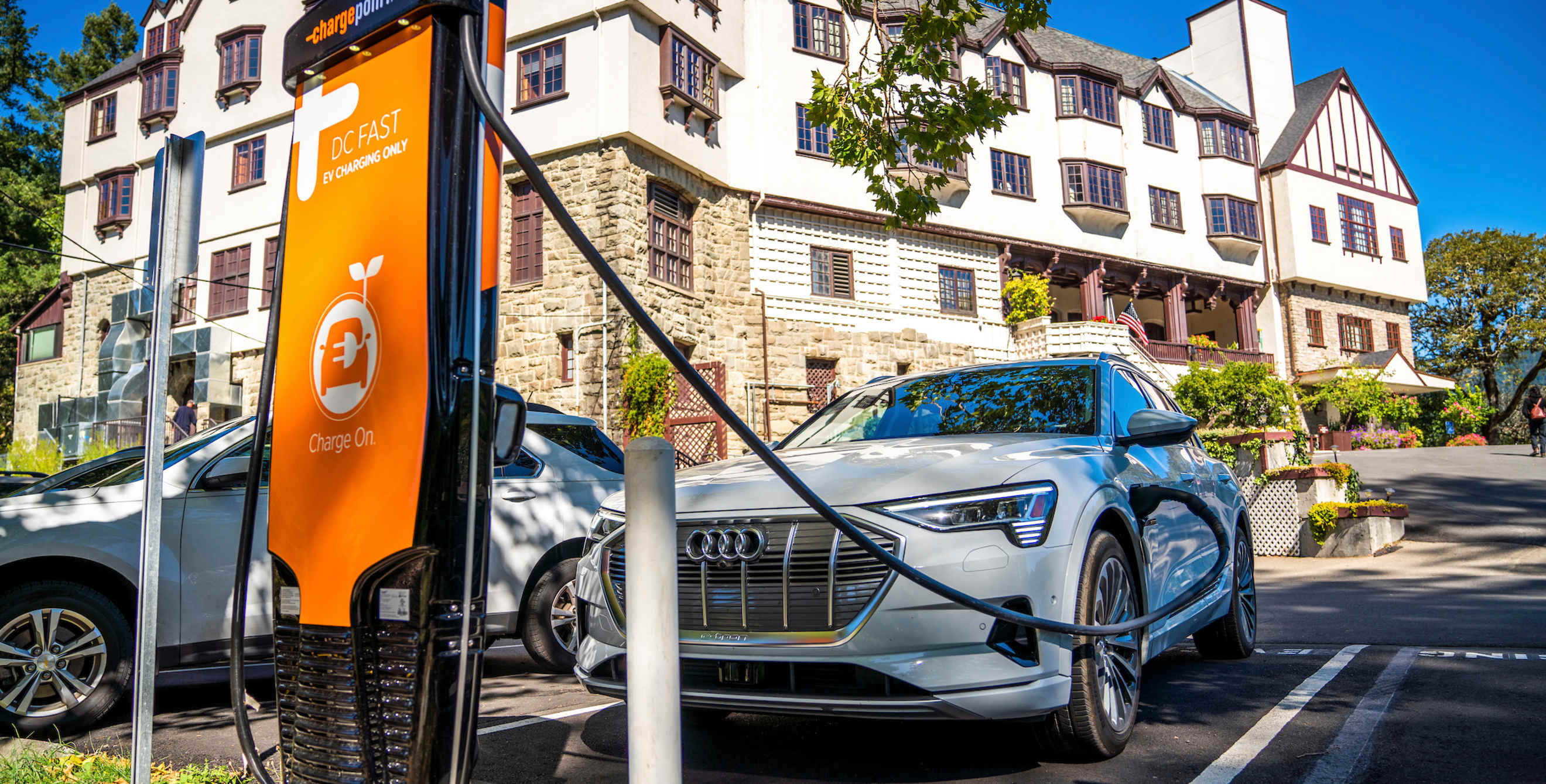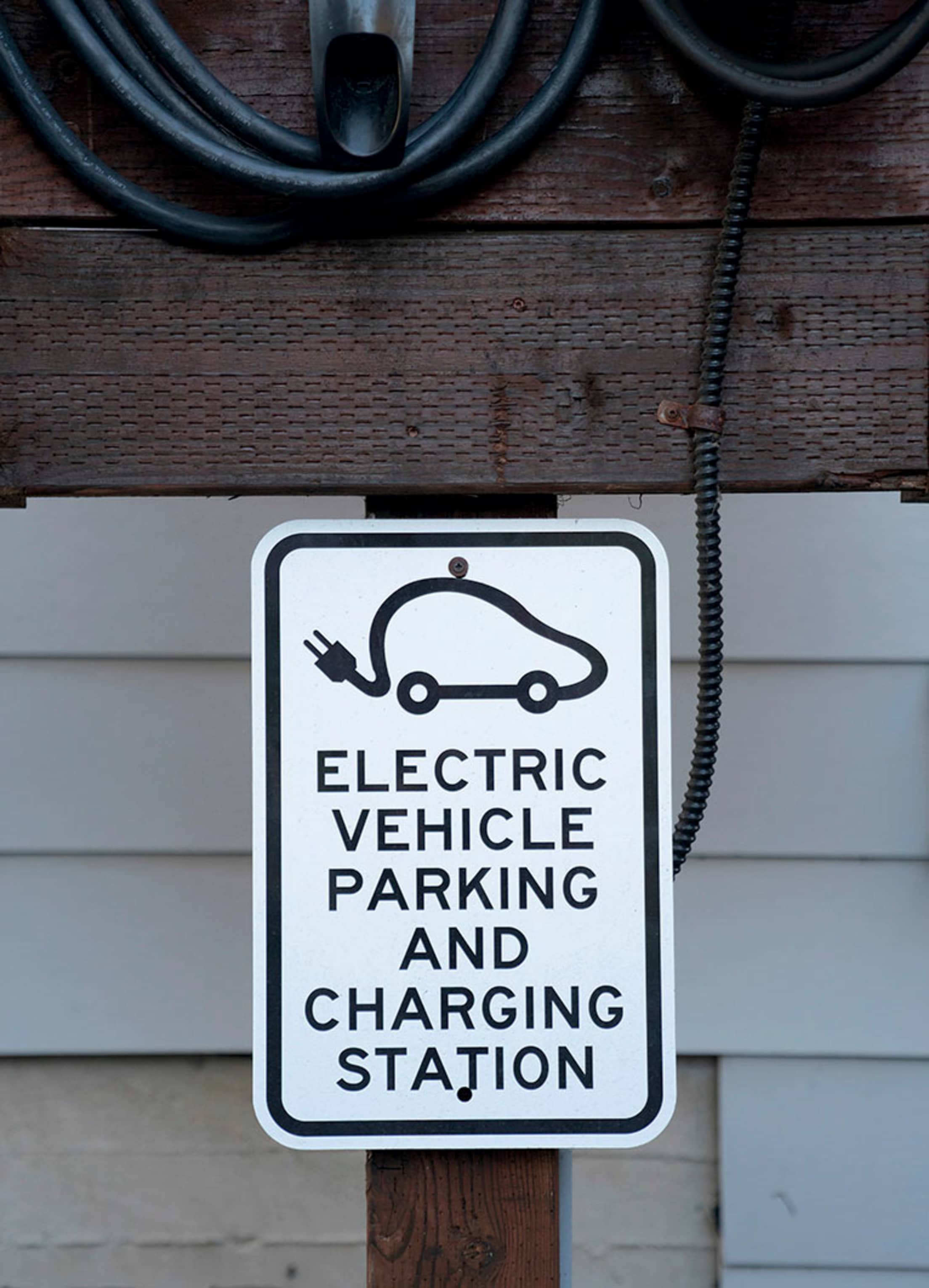
Top Questions About Electric Vehicles Answered
From driving range to upfront cost to fuel savings, answers to the most common EV questions.

According to the research firm Guidehouse Insights, nearly 17 million plug-in electric vehicles will be on the road in North America by the year 2030. But while the market for EVs is growing, there are still plenty of questions in buyers’ minds about their cost and practicality. Here’s what you need to know.
Do electric vehicles provide enough range for typical daily driving?
The AAA Foundation for Traffic Safety reports that U.S. drivers go an average 31 miles per day. Most EVs today get roughly 200 miles from a single charge, providing plenty of range for daily commutes.
One caveat: Cold weather can reduce that range by as much as 40 percent, according to a study by AAA. But even in that worst-case scenario, the average EV has enough juice from one charge for almost four days of commuting.
Are electric vehicles too expensive for average buyers?
Kelley Blue Book estimates that the average price in 2020 for a light-duty vehicle (passenger car) is about $38,900. That's a good benchmark.
Currently, about 20 electric vehicle models are available to U.S. consumers. The most affordable is the Nissan Leaf, with a starting price of $32,525. Federal and state incentives can reduce the final cost by as much as $10,000. The most expensive EV is the lightning-fast Porsche Taycan Turbo S, which sells for $185,000. The best-selling EV model today is the Tesla Model 3, which starts at $41,000—only a couple thousand bucks more than the average U.S. car.
Will I save money on fuel by driving an EV rather than a gas-powered car?
According to figures from the U.S. Department of Energy's fueleconomy.gov, a Toyota Corolla that averages 33 miles per gallon will cost $1.52 to travel 25 miles. (That's based on a gas price of $2 a gallon.) Switch to a 52 mpg Toyota Prius hybrid, and the price drops to 95 cents for those 25 miles.
If you upgrade to a Tesla Model 3, which is rated at the equivalent of 131 miles per gallon, those 25 miles will cost only 83 cents.

Battery replacement for an EV is costly but uncommon.
Do EV owners risk having to replace costly batteries?
Most automakers selling EVs offer a battery warranty of eight to 10 years. Electric cars have been on the market for only about a decade, so battery replacements have been extremely uncommon.
That said, if you needed a total battery replacement today, it could cost several thousand dollars. A widespread market for used EVs with depleted batteries should eventually develop. By that time, the cost for replacement is expected to drop—and an entire industry dedicated to recycling and refurbishing batteries is likely to emerge.
Are EVs really that green when the electricity they use is produced by burning coal?
According to the Department of Energy, EVs convert more than 77 percent of electrical energy from the grid to power at the wheels. Gasoline vehicles only make use of 12 to 30 percent of the energy stored in gasoline. So as a matter of pure energy efficiency, EVs have a big advantage.
Still, charging an EV does use grid electricity (unless you have solar panels). The Union of Concerned Scientists analyzed total carbon emissions for both gasoline and electricity production and use in every region of the country. Driving the average EV using grid-supplied energy creates carbon emissions equivalent to those of a 122 mpg gas car in California.

Access to a charging station is key if you live in an apartment building.
Does the U.S. electric grid have the capacity to charge millions of EVs?
Electricity demand has been flat for the past decade, while capacity has increased. If energy production and consumption continue to rise at the same rate, the grid should be able to meet forecasts for increased use of electric vehicles, according to a study by the Pew Charitable Trusts.
Most utilities welcome the opportunity not only to sell more electricity but also to spread demand throughout the day—and most EV owners charge their vehicles at night, when there's extra grid capacity and utility rates are lower. Emerging technologies will also allow EVs to push energy stored in their batteries back to the grid, actually adding power to the system.
Can people who live in apartments or multifamily housing own an EV?
The convenience of plugging your car in at home is an advantage, with one notable exception. About one-quarter of U.S. residents live in apartments or condos without dedicated parking spots. That makes EV charging more challenging. EV owners who live in multifamily dwellings need to get creative. Strategies include asking the property owner to allow you to install a charger in the garage or parking lot and using charging spots where you park for work.
Fortunately, the situation may improve. Many building codes now require make-ready spots for EV chargers in new construction. And Los Angeles, among other places, now offers a growing number of on-street chargers attached to light poles.
Make smart choices, whether you're buying, selling, insuring, maintaining, or repairing a vehicle.